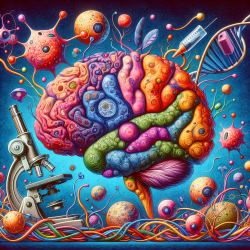The complex interplay between addictive behaviors and mental health issues among adolescents is a growing concern worldwide. A recent study focusing on adolescents aged 11-17 years in Bangladesh provides valuable insights into these challenges. This blog explores the findings of the study and offers guidance for practitioners looking to enhance their skills and interventions.
The Study at a Glance
The research titled "Addictive behavior and mental health of adolescents aged 11–17 years in Bangladesh in 2014: A cross-sectional study" analyzed data from the Bangladesh Global School-based Health Survey (GSHS) conducted in 2014. The study aimed to evaluate factors associated with addictive behavior and mental health among adolescents attending government schools.
Key Findings
- One in ten adolescents exhibited substance addictions, while one in four faced some form of mental health condition.
- Factors such as gender, bullying, parental tobacco use, parental understanding, and food affordability were significantly associated with addictive behaviors.
- Bullied males with nonempathetic parents were more vulnerable to addictive behaviors, whereas bullied females showed higher tendencies towards mental health issues.
Implications for Practitioners
The findings offer several actionable insights for practitioners working with adolescents:
1. Identifying Vulnerable Groups
Practitioners should focus on identifying adolescents who are more susceptible to addictive behaviors and mental health issues. This includes those who experience bullying, have parents who use tobacco, or lack parental understanding.
2. Developing Tailored Interventions
Interventions should be tailored to address the specific needs of vulnerable groups. For example, programs that foster parental empathy and understanding can significantly reduce the likelihood of adolescents developing addictive behaviors.
3. Addressing Bullying
Bullied adolescents are at a higher risk of both addiction and mental health issues. Practitioners should implement anti-bullying programs and provide support systems for victims to mitigate these risks.
4. Enhancing Parental Engagement
Encouraging active parental involvement in adolescents' lives can have a protective effect against addiction. Practitioners should work with parents to improve communication and understanding within families.
Encouraging Further Research
The study highlights the need for further research into the sociodemographic factors affecting adolescent addiction and mental health in Bangladesh. Practitioners are encouraged to engage in research initiatives that explore these dynamics more deeply.
Conclusion
The study provides critical insights into the factors influencing adolescent addiction and mental health in Bangladesh. By implementing targeted interventions and encouraging further research, practitioners can play a pivotal role in improving outcomes for this vulnerable population.
To read the original research paper, please follow this link: Addictive behavior and mental health of adolescents aged 11–17 years in Bangladesh in 2014: A cross-sectional study.










